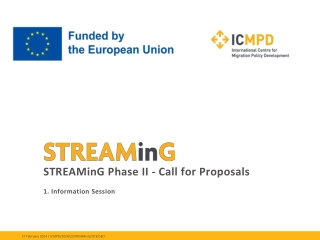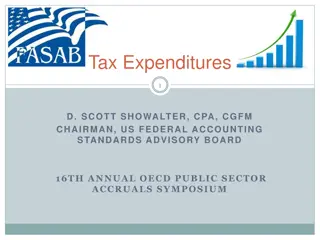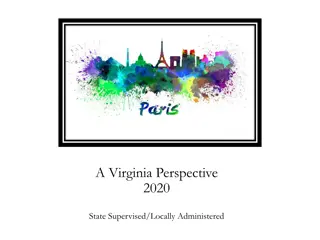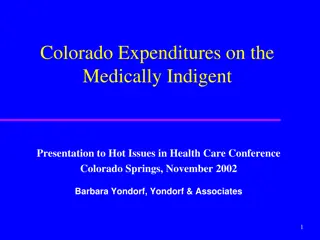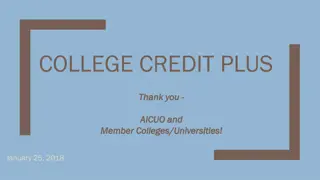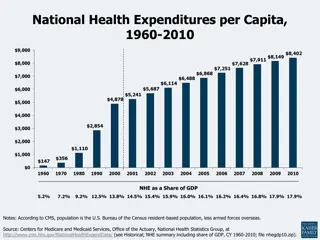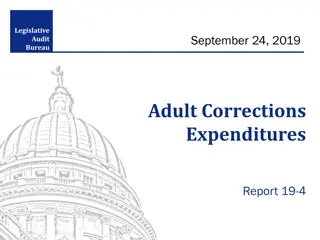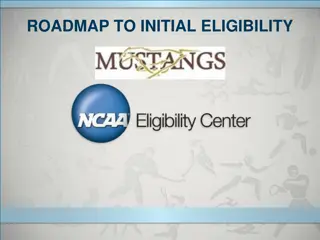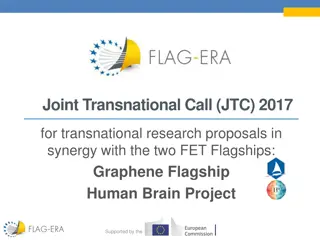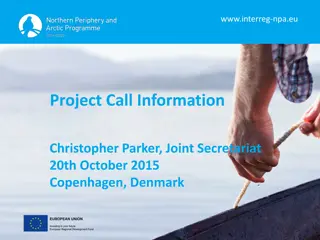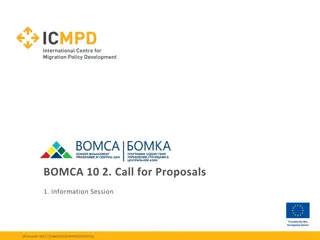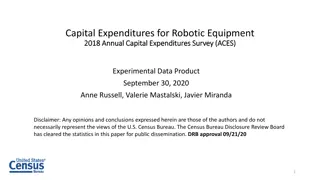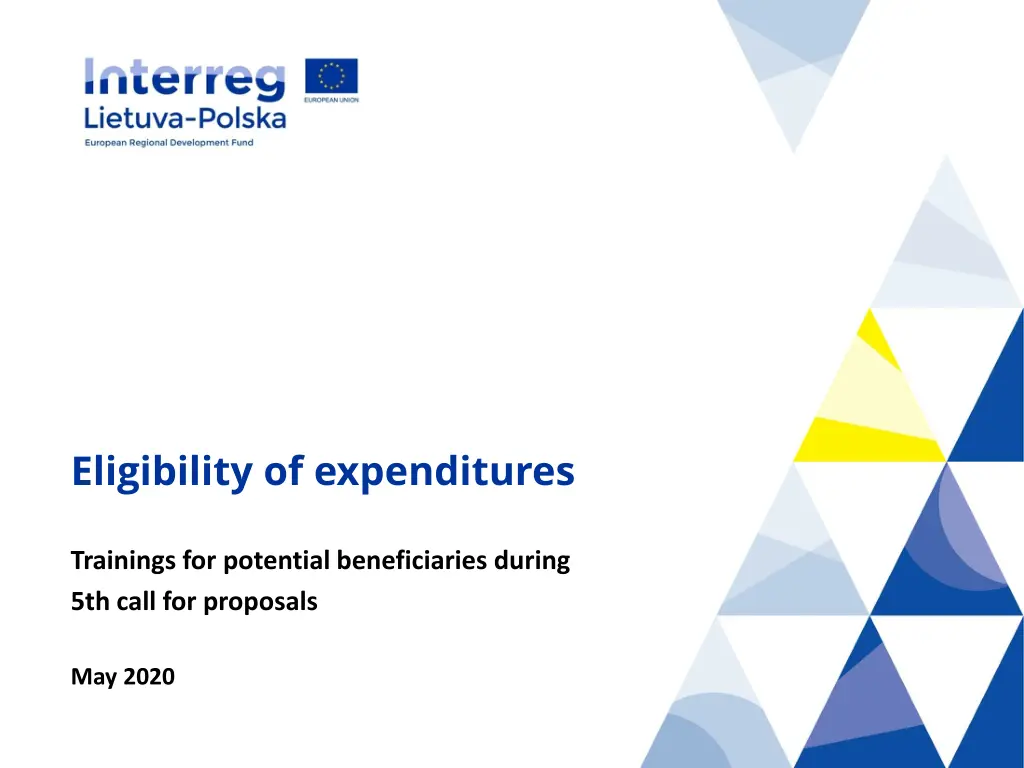
Eligible Expenditures and Budget Categories for 5th Call for Proposals May 2020
"Learn about eligible expenditures and budget categories for trainings under the 5th call for proposals in May 2020. Information on support rates, hints, tips, and staff costs is provided."
Download Presentation

Please find below an Image/Link to download the presentation.
The content on the website is provided AS IS for your information and personal use only. It may not be sold, licensed, or shared on other websites without obtaining consent from the author. If you encounter any issues during the download, it is possible that the publisher has removed the file from their server.
You are allowed to download the files provided on this website for personal or commercial use, subject to the condition that they are used lawfully. All files are the property of their respective owners.
The content on the website is provided AS IS for your information and personal use only. It may not be sold, licensed, or shared on other websites without obtaining consent from the author.
E N D
Presentation Transcript
Eligibility of expenditures Trainings for potential beneficiaries during 5th call for proposals May 2020
Full information Applicant package and other information is available at www.lietuva-polska.eu under the Section Application , 5th call for proposals All information regarding eligibility of costs and activities can be found in the Programme Manual and its annexes(applicable for 5th call for proposals)
Support rate 15% beneficiaries contribution 85% from ERDF No advance payments
Hints and Tips Start preparing a project budget from the early stage of project planning. Evaluate your financial capacities. Recommendation: to have a separate account in EUR for project Activities need to reach the outputs and results Calculation of project expenditure
Eligible expenditures Incurred and paid by beneficiary during the project implementation period Projects addressing COVID-19 pandemic possible start date and expenditure from February 1, 2020 New! Essential for the project s implementation Justified, in compliance with the principles of efficiency, economy and effectiveness, reasonable (cost effective) Consistent with the applicable EU Programme and national rules and in accordance with the principles of sound financial management Identifiable, verifiable and determined in accordance with the relevant accounting principles (exception: flat rates and lump sums) Not double-financed
Budget categories 1. Staff costs 2. Office and administrative expenditure Delegated regulation on ETC eligibility rules 3. Travel and accommodation costs 4. External expertise and service costs 5. Equipment expenditure Created additionally for the purpose of the Programme 6. Infrastructure and works 7. Preparation costs
Staff costs One option must be selected by the beneficiary: Flat rate iscalculated as 10% of direct project costs foreseen in budget categories 3-6 by each beneficiary and cannot be modified during the whole project implementation. Zero costs for this budget category New! No real costs basis.
Staff costs FLAT RATE Calculated and afterwards reimbursed on the basis of flat rate of 10 % of eligible direct project costs (budget categories 3-6 incurred in certain reporting periods) Has to be used by all project beneficiaries Will not require any EXCEPTION: Services for project Neither checked nor monitored in case some beneficiaries foresee zero staff costs and others are using flat rate) documentation from the project beneficiaries administration are not eligible
Indirect project costs Budget category 2. Office and administrative expenditure flat rate of 15% of eligible staff costs No need to provide any supporting documents. Neither checked, nor monitored. Automatic calculation in the Application Form
Office and administrative expenditure office rent Office and administrative expenditure utilities (e.g. electricity, heating, water) office supplies general accounting provided inside the beneficiary organizations are limited to: archives maintenance, cleaning and repairs insurance and taxes related to the buildings (e.g. fire, theft insurances) security IT systems
Office and administrative expenditure Office and administrative expenditure communication (e.g. telephone, fax, internet, postal service, business cards); bank charges for opening and administrating the account or accounts where the implementation of an operation requires a separate account to be opened charges for transnational financial transactions are limited to:
Office and administrative expenditure General principles Costs of FLC of the Lithuanian project beneficiary cannot be included under this budget category; they must be reported under the External expertise and services costs budget category. Office equipment, IT hardware and software, and furniture, and fittings cannot be included under this budget line; these costs must be reported as equipment expenditure.
Travel and accommodation costs The category concerns travel expenditure only of employees of the beneficiary institution if: - directly related to the activities implemented in the project in locations other than usual place of residence of these employees, or - necessary for project administration and having a valuable contribution to the implementation of the project and the delivery of the project outputs. Costs outside the Programme area can be eligible if necessary to reach the project results Costs should be in line with travel and accommodation policy/rules of the project beneficiary Remember about effectivenness, cost-efficiency, eco-friendlines and national limits Cancellation costs borne by beneficiary eligible only in case of force majeure Public transport has priority over private/company cars and taxis
Travel and accommodation costs travel costs (e.g., tickets, travel and car insurance, fuel, car mileage, toll and parking fees) Closed list of eligible expenditures costs of meals accommodation costs visa costs daily allowances
Travel and accommodation costs Examples of ineligible expenditures Travel and accommodation costs of external experts and service providers (eligible under External expertise and services costs budget category). Travel and accommodation costs of participants of events organised by the project, when the participants do not contribute to delivery of the project results. Daily allowances and accommodation costs in the amount higher than rates established in the national law.
External expertise and service costs The category includes expenditure for external service/expertise providers Advance payments: accepted only in specific cases. The work by external experts and service providers must be essential to the project and have to be linked to activities foreseen in the AF. Connection to the implementation of certain project tasks that cannot be carried out by the project beneficiaries themselves. Staff of project beneficiaries cannot be contracted as external service providers by any other beneficiary. Public procurement rules should be respected (EU, Programme, national and internal). Partial payments: only after the part of the contracted services are delivered; indicated in the service contract.
External expertise and service costs External service/expertise provider - legal body or natural person other than beneficiary organisation/employee, who is subcontracted to carry out certain tasks/activities linked to delivery of the project results If a project beneficiary cannot implement a certain task, it may be reallocated to another project beneficiary or procured to an external service provider Payments: on the basis of contracts or written agreements as well as invoices or requests for reimbursement Staff of project beneficiary cannot be contracted as external experts
External expertise and service costs training Examples of eligible expenditures translations IT and website development, modifications and updates promotion, communication, publicity or information linked to an operation or to a Programme financial management services related to the organisation and implementation of events or meetings participation in events (e.g. registration fees) intellectual property rights travel and accommodation for external experts, speakers, chairpersons and service providers other specific expertise and services needed for project
External expertise and service costs Examples of ineligible expenditures Costs of gifts, except those not exceeding 50 EUR per gift when related to promotion, communication, publicity or information and when communication rules have been respected. Expenditures for film making, commercials, audio material, advertisements costs of which deviate to a large extent from the commonly binding market prices. Costs of expert opinion, consultancy in the area of the beneficiary s appeal from a decision of a national controller or of the MA. Costs of compensation/ wages for professional artists and authors. Expenditure for basic courses (e.g. language, accounting, use of MS Office package).
Equipment expenditure Expenditure for the financing of equipment purchased, rented or leased by a beneficiary, necessary to achieve the objectives of the project Equipment to be used solely for the purpose of the project or the target group in line with objectives of the project (operating and servicing costs are eligible) Related equipment cannot be purchased, rented or leased from another project beneficiary Costs of equipment are not included under any other budget category Purchase of equipment must be approved by the JMC Public procurement rules to be applied
Equipment expenditure Second-hand equipment may be eligible if: Costs of furnishing and equipment of the workplace for employees directly involved in the project on: - no double financing and - price does not exceed generally accepted market price and - at least half-time basis: - necessary for the project and complies with applicable norms and standards. eligible in their proportional amounts. Advance payments for the equipment possible if: Clearly indicate future ownership in the Application Form. - delivery cannot start without it and Durability principle - equipment should be used by beneficiaries for 5 years after the final payment. - is indicated in the contract.
Equipment expenditure Closed list of eligible expenditures office equipment IT hardware and software furniture and fittings laboratory equipment machines and instruments tools or devices vehicles only in exceptional cases other specific equipment necessary for the project
Equipment expenditure Depreciation rules Non-depreciable equipment - full cost can be eligible Only the value of depreciation incurred during project timeframe can be eligible Equipment rented/leased (depreciation not applied) - full cost can be eligible Equipment partially used for the project only a pro rata corresponding to the share related to the use for the project can be eligible
Infrastructure and works Important: Planned works must have clear link for achieving project objectives and their demand should be justified by the cross-border activities. The technical project is not required to be attached to the project AF during the application phase, it should be submitted only an annex with brief description (scope and value) of the construction works (see part 3.6.3. of Program Manual for more information) New! The technical project should be submitted after the JMC decision regarding project selection and only projects which submit full documentation during conditions fulfilment stage can be co-financed by the Programme.
Infrastructure and works NOTE: Accumulated amount of budget categories No 5 and No 6 cannot exceed 85% of total eligible project budget. When accumulated amount of those two categories (No 5 Equipment expenditure costs and No 6 Infrastructure and work costs) exceeds 60% of the total eligible project budget, such a project is treated as an investment project.
Infrastructure and works Site Constructing preparation Installation Delivery Eligible costs Other costs necessary to the implementation of construction works Renovation
Infrastructure and works Infrastructure and construction works shall be the result of cross border cooperation actions specifically directed at improving the development of the Programme area in line with the additionality principle Costs of infrastructure and construction works are eligible if they have been approved by JMC when aprroving the project for funding Infrastructure and works Infrastructure and construction works will be financed only if it is crucial for the achievement of the the project s outputs and results, and if they are clearly described in the AF Costs are eligible if no other EU/regional/national funds have contributed towards financing of the same expenditure item (no double financing is permissible)
Infrastructure and works All compulsory requirements set by the EU and national legislation related to the respective investment in infrastructure and all technical preconditions for the investment have to be fulfilled in order to start the procurement procedures of works All costs are subject to applicable public procurement rules and each beneficiary organisation is responsible for ensuring that these rules have been respected Infrastructure and works Full costs of infrastructure and construction works may be eligible under this budget category as far as they are fully justified in the framework of the project activities and the final result of infrastructure and construction works is an output of the project The purpose and ownership of the infrastructure cannot be changed for at least 5 years after the project end date
Preparation costs Lump sum of fixed amount of 2000,00 EUR to cover costs incurred by all project beneficiaries in relation to preparation of the Application Form. These costs will be reimbursed to the lead beneficiary only once - with the first CPR. preparation costs for translation during beneficiaries meetings organization of the events for beneficiaries meetings (including online) preparation costs for beneficiaries meetings (including online)
Ineligible expenditures Examples of ineligible expenditures fines, financial penalties and expenditure on legal disputes and litigation, costs incurred and/or paid outside project duration (except for preparation costs), costs related to fluctuation of foreign exchange rate, interest on debt, recoverableVAT, charges for national financial transactions, in kind contribution
Where to find more information Applicant package and other information is available at www.lietuva-polska.eu under the Section Application All information can be found in the Programme Manual and its annexes Digital application form to be filled in should be downloaded The address for submitting signed and scanned applications: application@lietuva-polska.eu

